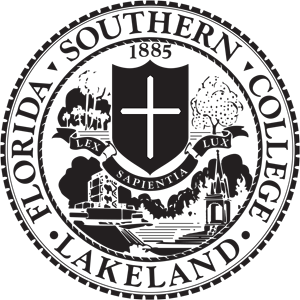
FSC’s School of Physical Therapy Embraces Innovations
Aug 28, 2019

New students in ¿÷≤•¥´√Ω»Îø⁄’s Doctor of Physical Therapy program are quickly settling into classrooms, labs, and study lounges at the state-of-the-art facility on Lakeland’s South ¿÷≤•¥´√Ω»Îø⁄ Avenue, learning the essentials of their chosen field with the guidance of seven committed faculty whose innovative teaching methods are supported by cutting-edge research and training technologies. Students will also participate in hands-on internships with community partners such as Watson Clinic and Lakeland Regional Health.
“We look forward to having ¿÷≤•¥´√Ω»Îø⁄ Southern’s students do their field work with us,” said Jack Ryals, physical therapy coordinator for both the Watson Clinic Center for Specialized Rehabilitation and its Physical Therapy and Sports Medicine facility. “We’re the largest outpatient facility in the county, and we’ll be taking two interns at a time – one at each center – starting in August of 2020. One of our staff physical therapists will be an adjunct professor at the school too, starting in September.”
 In sunlit and expansive second-floor labs at the Jean and Sal Campisi, Sr. Academic Center for Physical Therapy, students learn different physical therapy techniques. Although therapy tables are positioned throughout a large practice lab, instructors are able to choose between three ceiling-mounted cameras to focus attention wherever they wish. Zooming in from virtually any angle, an instructor can share close-up images on four large display monitors.
In sunlit and expansive second-floor labs at the Jean and Sal Campisi, Sr. Academic Center for Physical Therapy, students learn different physical therapy techniques. Although therapy tables are positioned throughout a large practice lab, instructors are able to choose between three ceiling-mounted cameras to focus attention wherever they wish. Zooming in from virtually any angle, an instructor can share close-up images on four large display monitors.
“We can show any area in the room,” said Dr. Nancy Nuzzo, program director and dean of the School of Physical Therapy. This gives all students a clear and unobstructed view without needing to leave their tables. The cameras and monitors are easily controlled with an iPad, Nuzzo added, whether the instructor is at the lectern or moving freely around the lab.
Just down the hall in the anatomy lab, where students spend hours at a time concentrating on complex structures of the human body, FSC has brought an entirely different type of innovation to the teaching process.
Becoming a doctor of physical therapy – a “movement expert” whose expertise helps people of all ages to maintain functionality – requires a comprehensive understanding of the human body’s muscles, tissues, nerves, and blood vessels. Traditionally, this learning process involves a great deal of lab work that includes the dissection of human cadavers, a complicated and extremely time-consuming procedure. FSC has eliminated the need for dissections by acquiring a number of “plastinated” body parts from the University of Toledo.
“Students at other schools are dissecting cadavers and learning,” Dr. Nuzzo explained. Physical therapy students at FSC “are spending so much valuable time learning, not doing dissections,” she said.
The innovative plastination technique, when applied to human donations, preserves the body’s tissues by replacing biological fluids with polymers such as silicone, epoxy or polyester. The resulting specimens can be prepared for study in various states of dissection. Some of FSC’s plasticized specimens display superficial muscles and tissues, while others show deeper structures such as nerves and vasculature that would have required many hours of dissection. Unlike cadavers for dissection that must remain wet, plasticized cadavers are dry and can be pulled out easily for classroom review in future semesters or for clinicians taking a continuing education course.
Additional new technologies and equipment will be put into use in the spring semester. These innovations will include:
- Mindray M8 Elite portable ultrasound units, which provide diagnostic imaging, will be used in conjunction with the plastinated cadavers to reinforce anatomy and neuromuscular concepts, as well as to evaluate muscle structure and function, as a source of neuromuscular biofeedback during clinical assessment class sessions, and for faculty research.
- The Bertec balance system will provide a variety of balance assessments, including static balance tests, weight shifting, and high-level balance testing for athletes. Static balance and weight shifting activities can be easily integrated into a customized physical therapy program. The system is portable to bring balance services beyond clinic walls.
- The Strideway gait analysis system, which simplifies the gait analysis process with easy access to essential gait parameters in just a few clicks, will provide objective information to identify gait dysfunctions and will create a patient database to track progress and comparison reports.
Students who are currently enrolled as members of the School of Physical Therapy’s first class will graduate in the fall semester of 2021.
Effective 5/15/19, ¿÷≤•¥´√Ω»Îø⁄ School of Physical Therapy has been granted Candidate for Accreditation status by the Commission on Accreditation in Physical Therapy Education (1111 North Fairfax Street, Alexandria, VA, 22314; phone: 703-706-3245; email: accreditation@apta.org). If needing to contact the program/institution directly, please call 863-680-5126 or email nnuzzo@flsouthern.edu.
Candidate for Accreditation is a pre-accreditation status of affiliation with the Commission on Accreditation in Physical Therapy Education that indicates the program is progressing toward accreditation and may matriculate students in technical/professional courses. Candidate for Accreditation is not an accreditation status nor does it assure eventual accreditation.